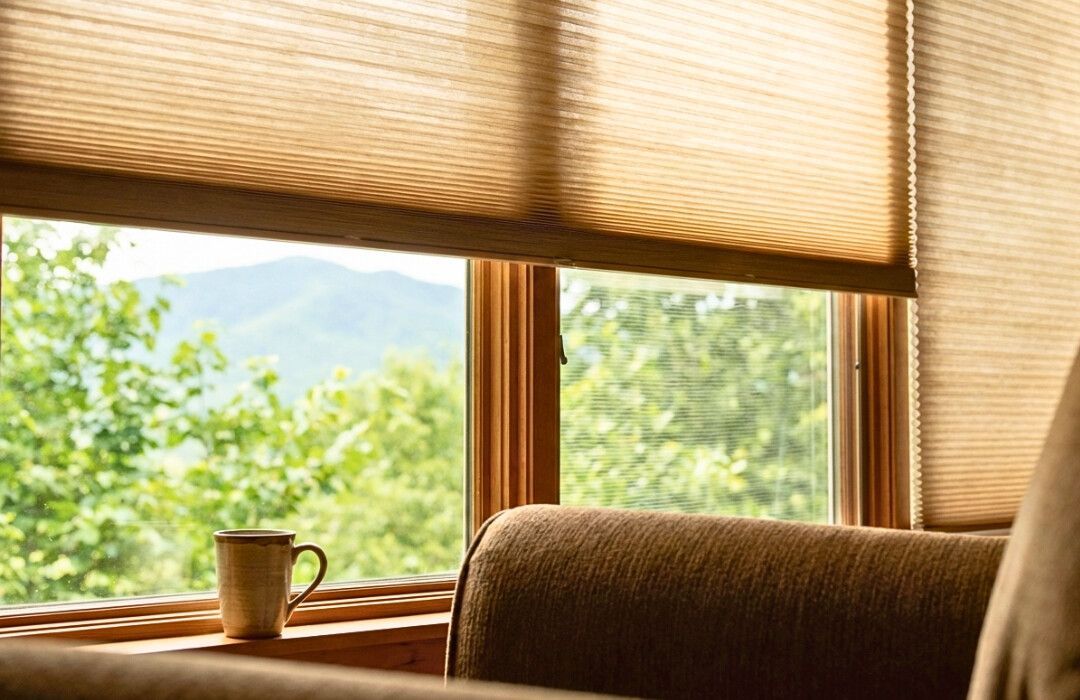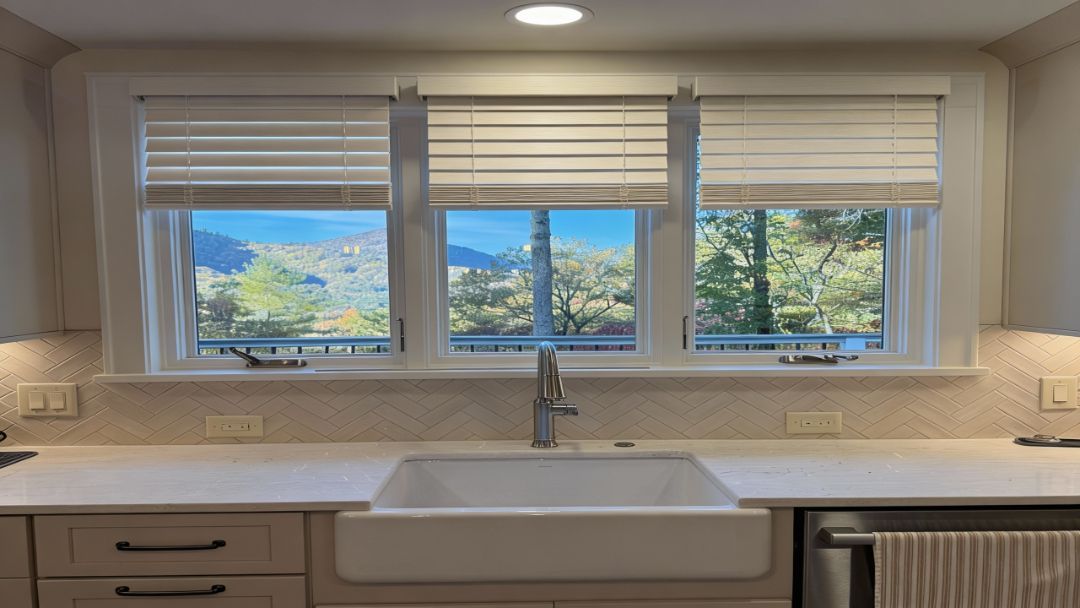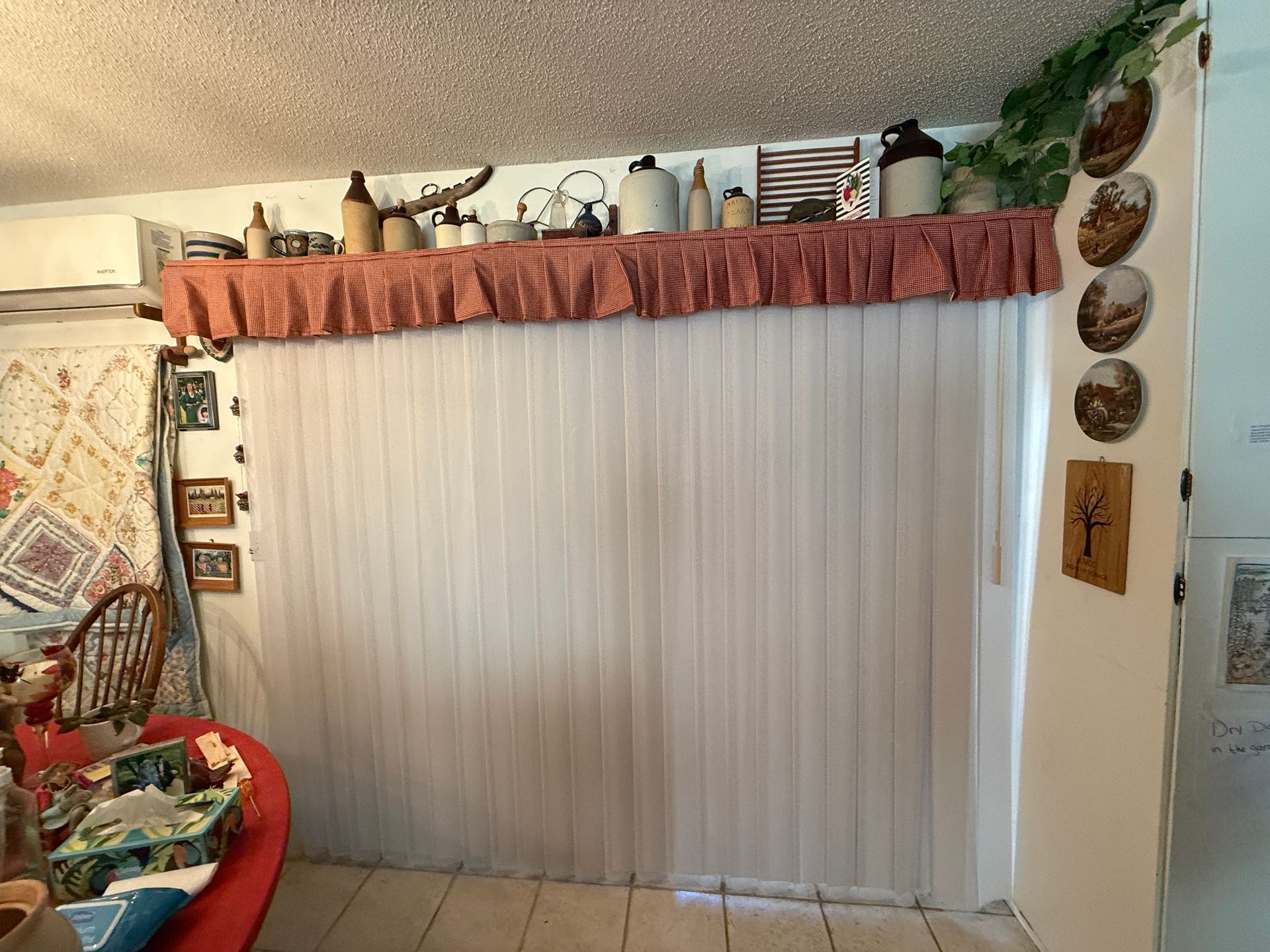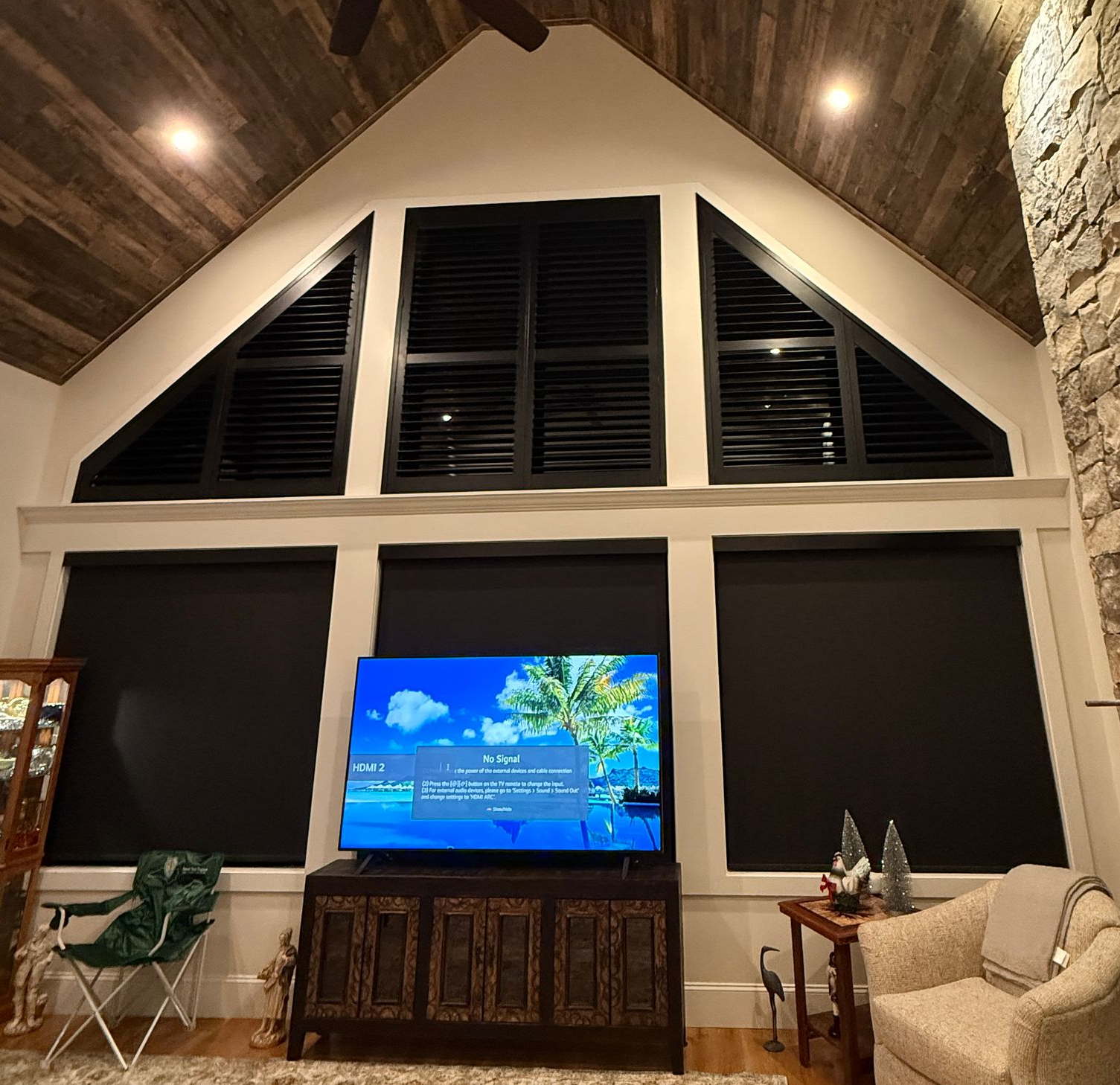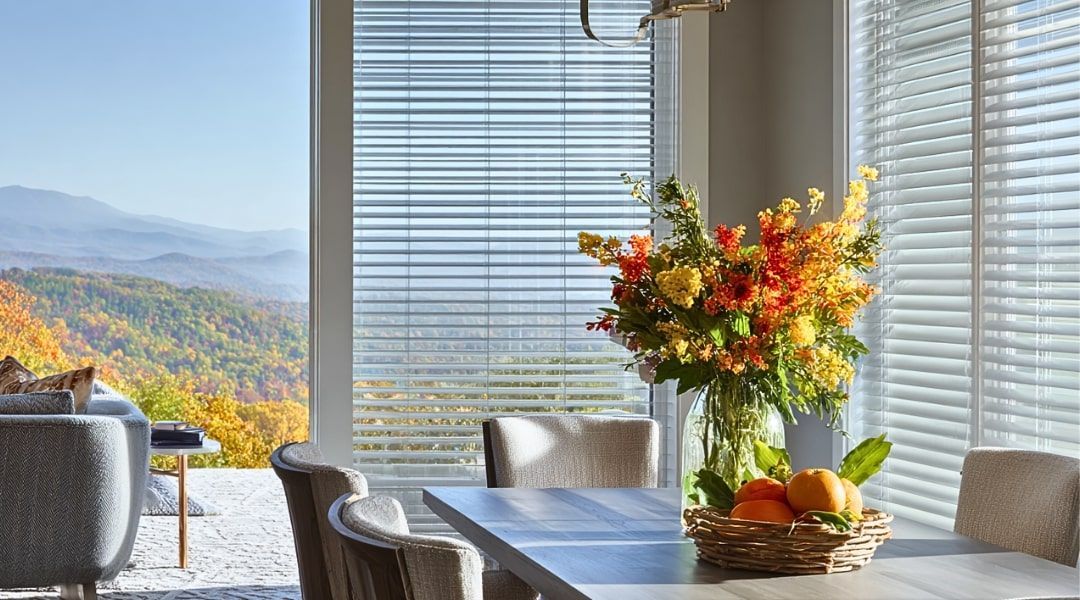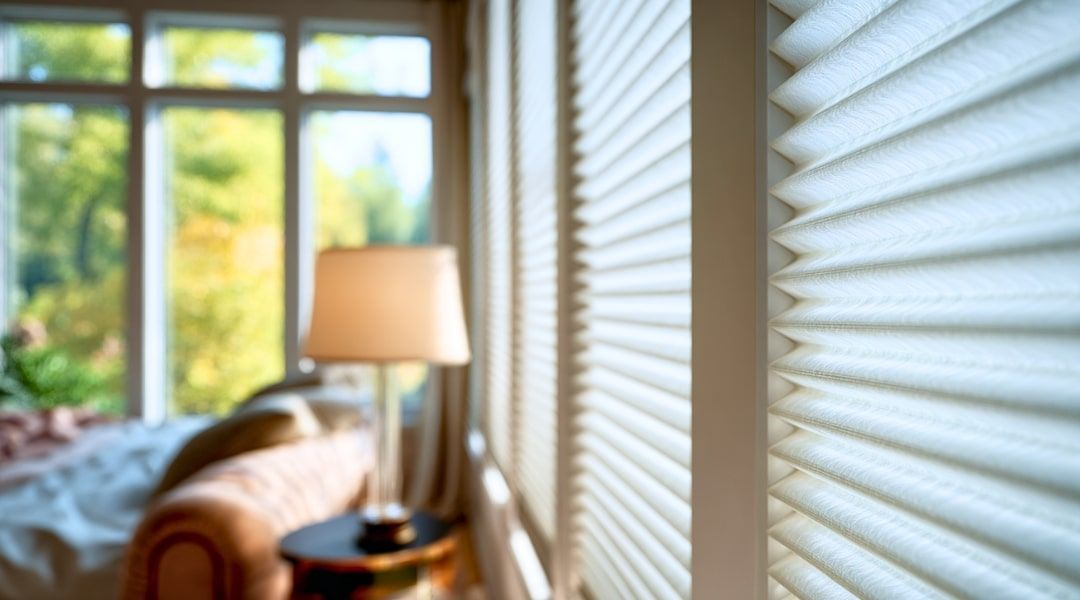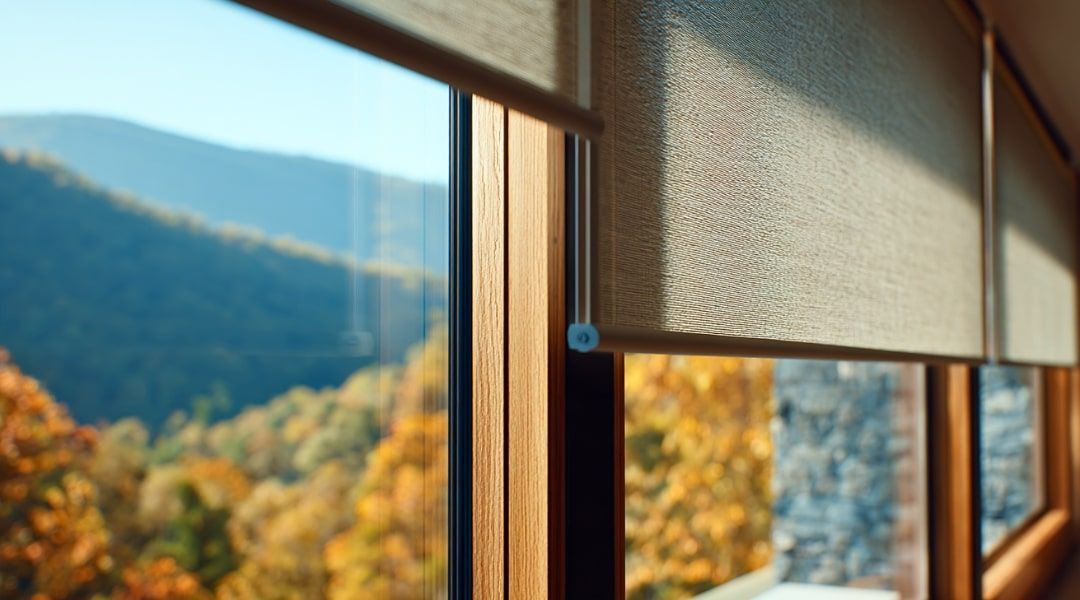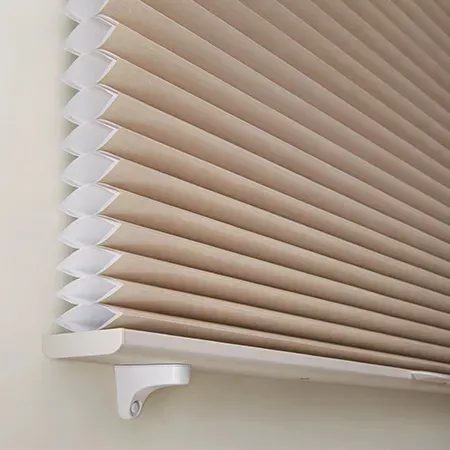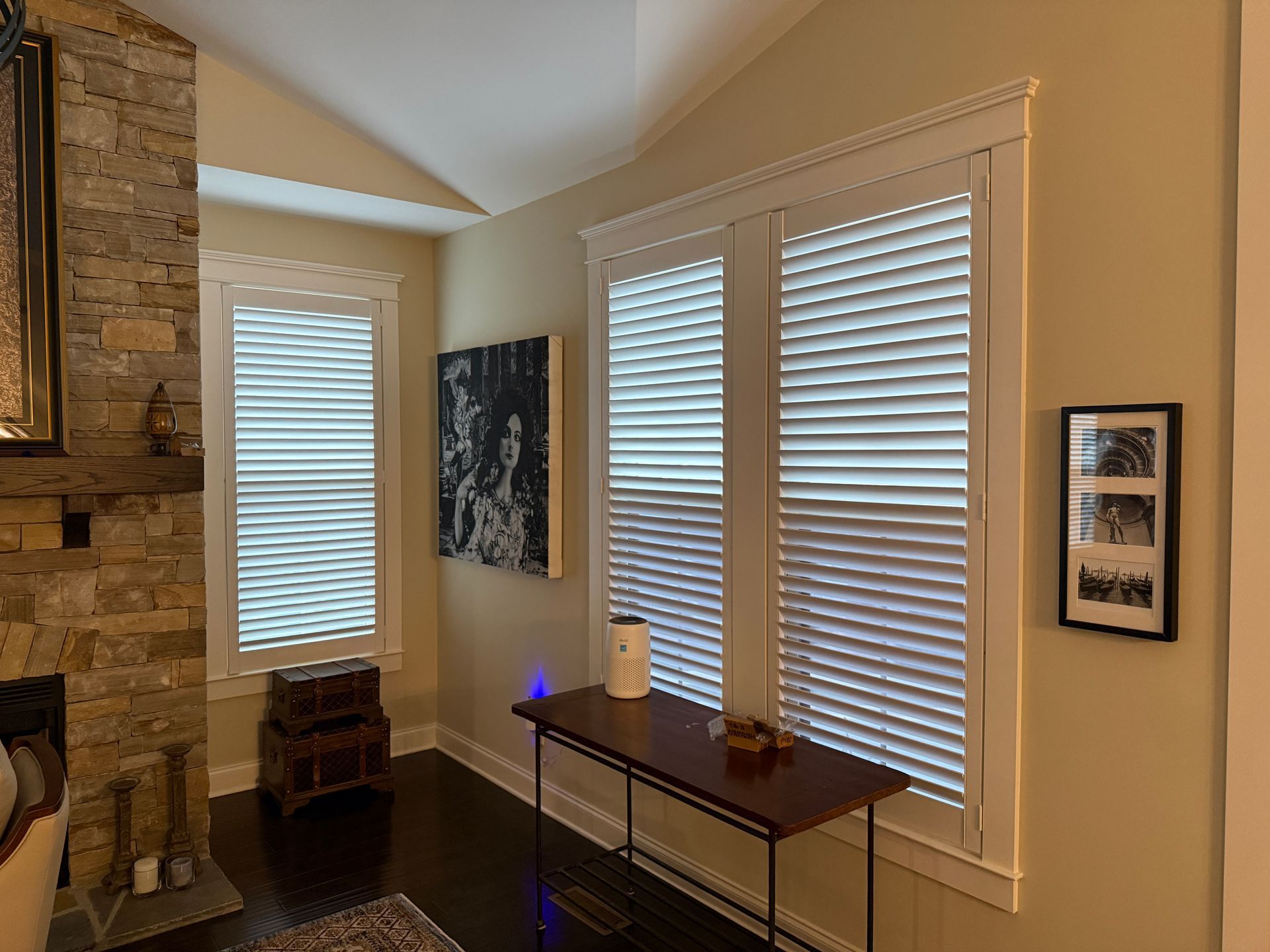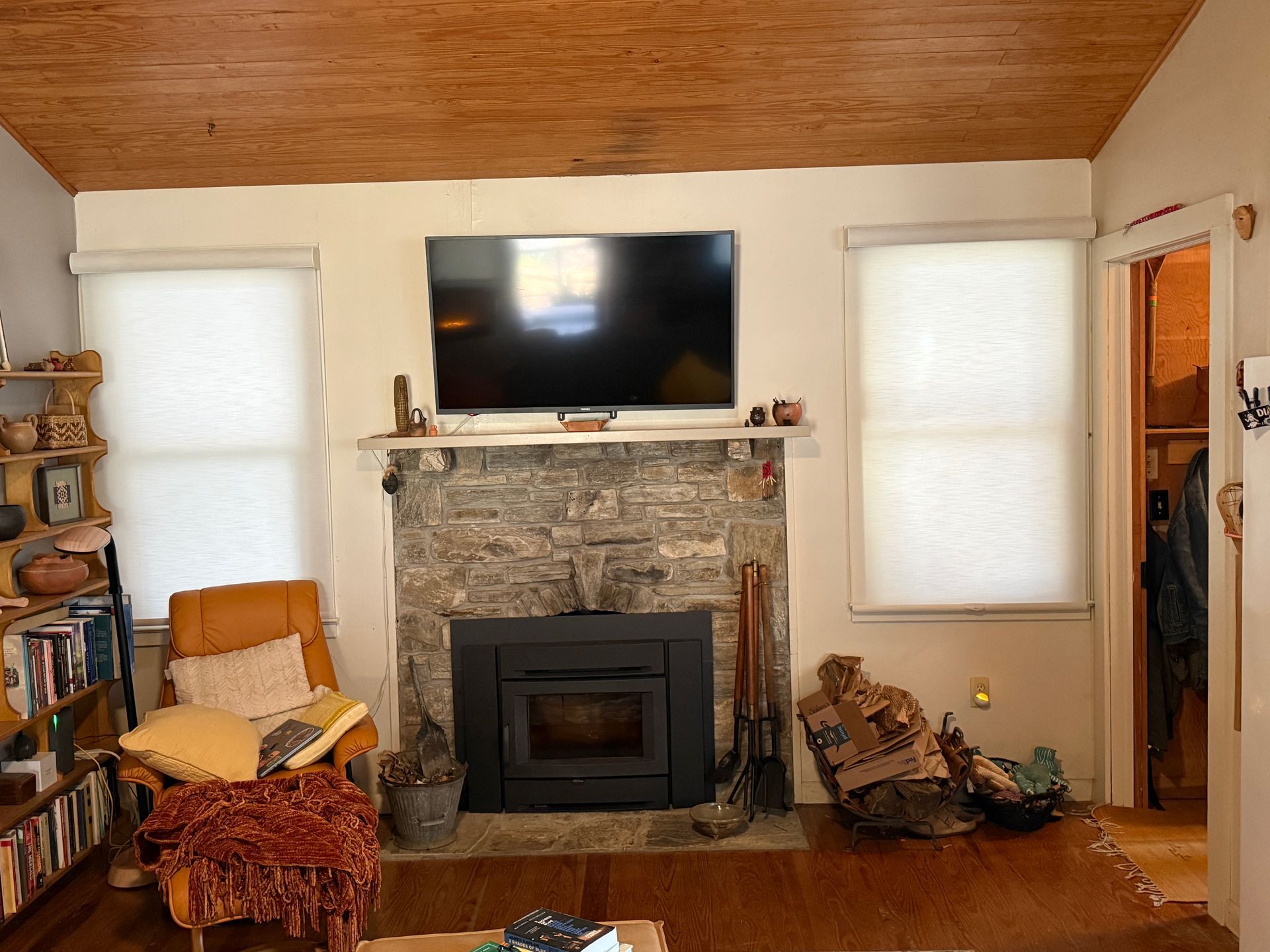Which is Better for Apartments: Blinds or Shades?
Which is Better for Apartments: Blinds or Shades?
TLDR;
Blinds are better for apartments if you want precise light control, durability, and easy maintenance. Shades are the better choice if you prioritize energy efficiency, enhanced privacy, and a sleek, modern look. Ultimately, the decision depends on your specific needs, budget, and apartment style.
Introduction: The Importance of Choosing the Right Window Treatment for Apartments
When renting an apartment, selecting the right window treatment is more than just an aesthetic choice—it affects privacy, energy efficiency, and overall comfort. Blinds and shades each have unique benefits, making the choice between the two an important consideration for any renter or property manager. In this guide, Love Is Blinds NC breaks down the pros and cons of blinds and shades to help you make the best decision for your living space.
What Are Blinds and Shades? Understanding the Differences
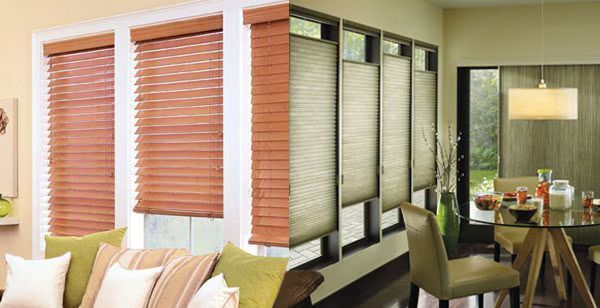
Before choosing, it’s important to understand what sets blinds and shades apart.
Blinds: Structured and Adjustable
Blinds are made from hard materials such as wood, faux wood, aluminum, or vinyl. They consist of slats that can be tilted open or closed to control light and privacy levels.
- Light Control: Adjustable slats allow for precise lighting and privacy control.
- Material Variety: Available in wood, faux wood, aluminum, and PVC options.
- Easy Maintenance: Dusting or wiping down slats is typically enough to keep them clean.
Shades: Soft and Stylish
Shades are made of fabric and come in various styles, such as roller, Roman, and honeycomb (cellular) shades. Unlike blinds, they do not have slats, offering a more seamless and elegant look.
- Better Insulation: Some shades, like cellular shades, help with energy efficiency.
- Improved Privacy: No gaps between slats, providing better blackout and privacy options.
- Stylish Designs: Available in various colors, patterns, and materials.
Comparing Blinds vs. Shades for Apartments
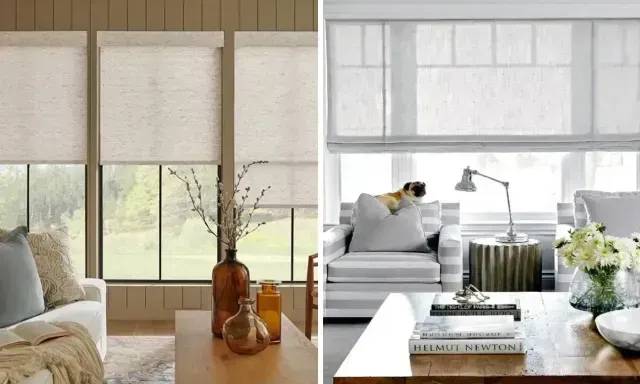
Light Control & Privacy
- Blinds: Offer adjustable slats, allowing you to control how much light enters the room.
- Shades: Provide better privacy, especially with blackout or light-filtering fabrics.
Energy Efficiency
- Blinds: Minimal insulation; better for light control than temperature regulation.
- Shades: Cellular shades trap air, reducing heating and cooling costs.
Maintenance & Durability
- Blinds: Easy to clean; dust and wipe down slats.
- Shades: Require gentle cleaning; fabric can stain or collect dust over time.
Aesthetic Appeal
- Blinds: Provide a more structured, minimalist look.
- Shades: Offer soft textures and modern designs for a cozy aesthetic.
Apartment-Specific Considerations: Which One is Right for You?
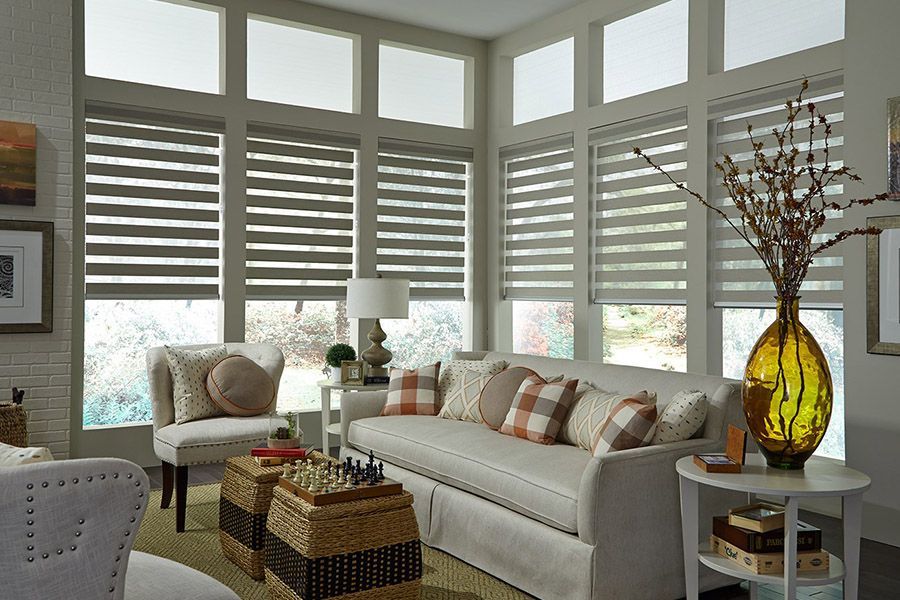
Space-Saving Design
- Roller shades take up less space than bulkier blinds, making them ideal for small apartments.
Rental-Friendly Installation
- Many blinds and shades come with tension rods or peel-and-stick options, avoiding damage to apartment walls.
Noise Reduction
- Cellular shades help dampen street noise, making them a great choice for apartments in busy areas.
Common Content Gaps (What Others Don’t Tell You)
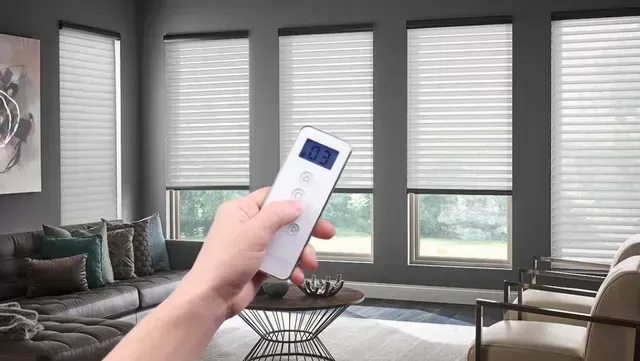
Smart Home Integration
- Motorized blinds and shades can be controlled via Alexa or Google Home, providing convenience for tech-savvy renters.
Safety for Kids & Pets
- Cordless blinds and shades eliminate strangulation risks, making them the safest option for families.
Eco-Friendly Solutions
- Bamboo blinds and recycled fabric shades are sustainable alternatives for eco-conscious renters.
Cost & Budget Considerations
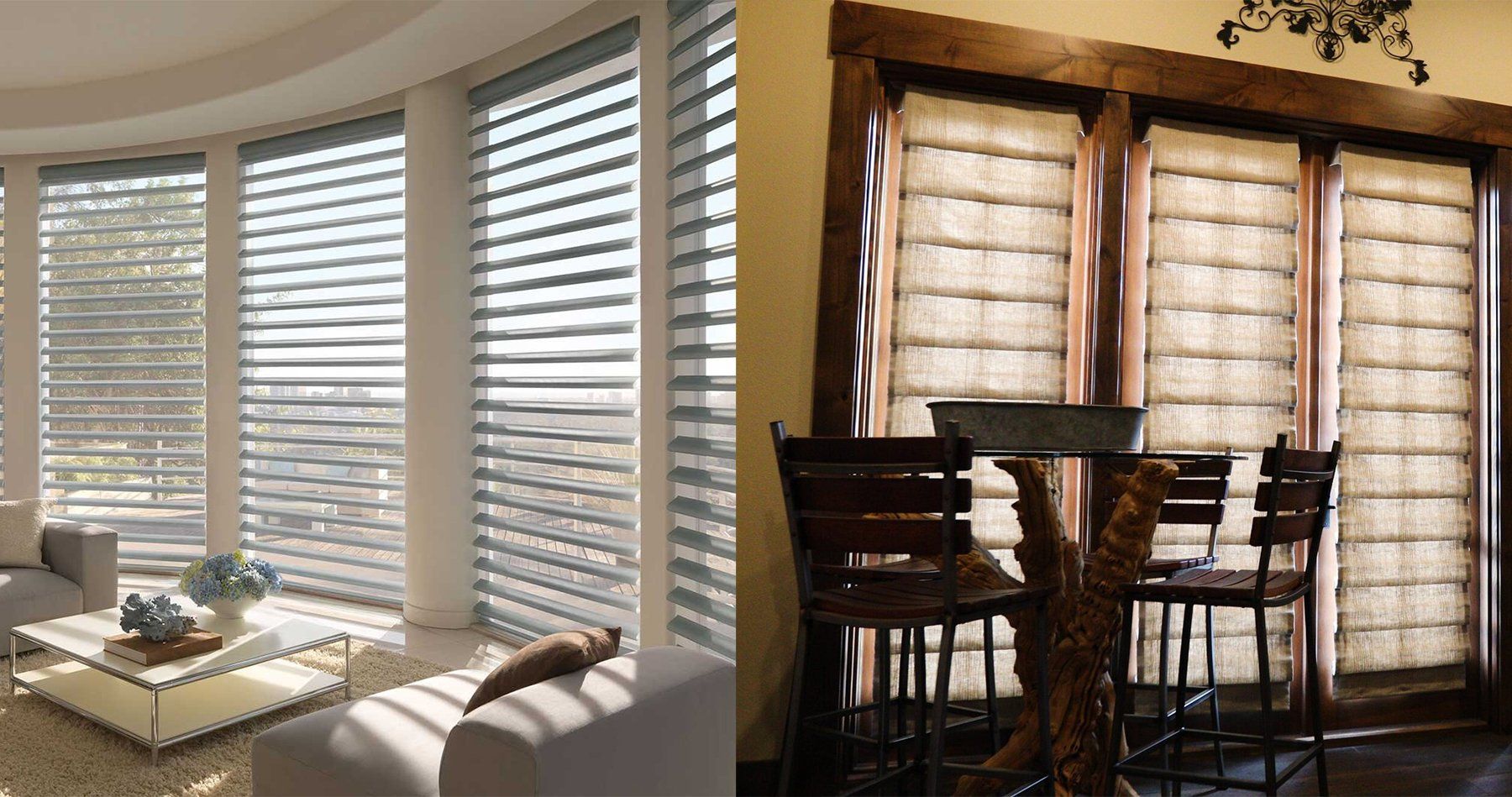
Budget-Friendly Options
- Faux wood blinds and roller shades provide durability and affordability.
Long-Term Investments
- Motorized shades and real wood blinds offer luxury, convenience, and longevity.
Room-Specific Recommendations
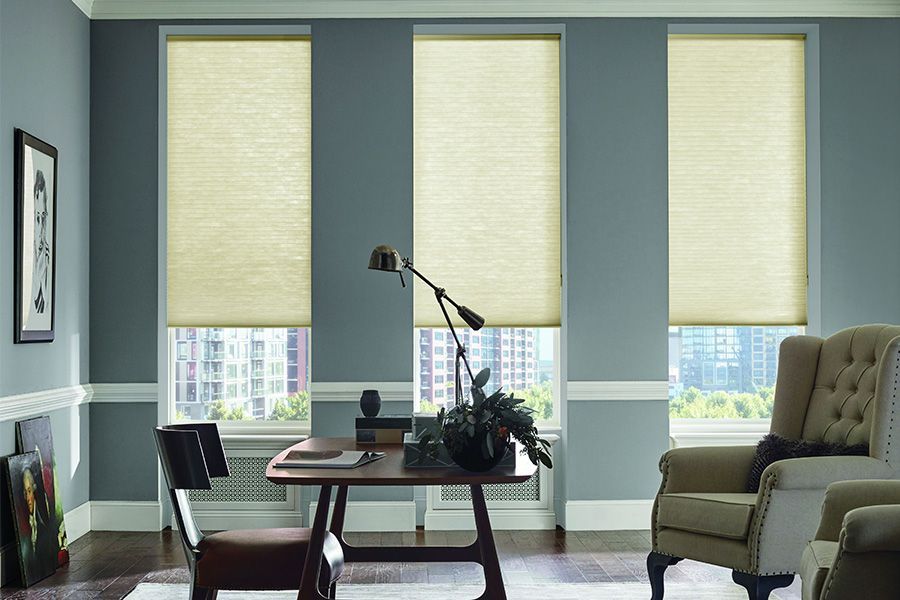
Best for Bedrooms
- Blackout shades ensure complete darkness for a better night’s sleep.
Best for Living Rooms
- Sheer shades or wooden blinds provide a balance of natural light and privacy.
Best for Kitchens & Bathrooms
- Moisture-resistant blinds for basement windows are ideal for lower-level spaces where humidity and limited light are common. Faux wood or vinyl options provide privacy, durability, and easy maintenance.
Should You Choose Blinds or Shades?
If you want adjustable light control, durability, and easy maintenance, blinds are your best bet. If you prioritize privacy, energy efficiency, and a sleek aesthetic, shades are the superior choice. Love Is Blinds NC offers a wide range of both blinds and shades to match your apartment’s needs.
FAQs
What is the most cost-effective window treatment for an apartment?
Faux wood blinds and roller shades are the most budget-friendly options, offering durability and style at a lower cost.
Do landlords allow blinds or shades?
Most landlords permit both, but it’s best to check your lease agreement before making a purchase.
Which blinds or shades are best for pet owners?
Cordless blinds or roller shades are ideal for pet owners to prevent tangling hazards.
Are there temporary blinds for renters?
Yes, there are peel-and-stick blinds and tension rod shades, which can be installed without drilling or damaging walls.
Conclusion:
Not sure which blinds or shades are right for your apartment? Contact Love Is Blinds NC today for expert recommendations and a free consultation. Browse our collection of stylish, rental-friendly window treatments to find the perfect match for your space!


